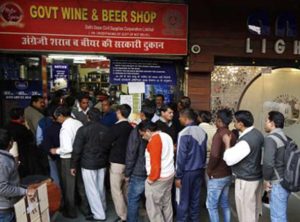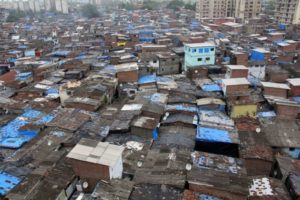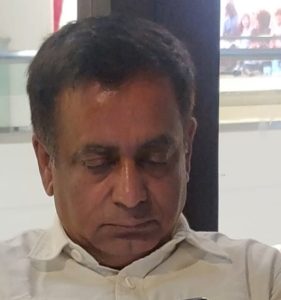Tearing hurry to return to normalcy will be highly counterproductive
With a mad rush to boost the economy through easy options like opening liquor vends, relaxation of curfew curbs, starting of truck movement without streamlining interstate modalities, boosting driver confidence and mass movement of migrant labour to home states without a fool-proof system in place, in just two days, India has witnessed an increase in COVID-19 infections. History of pandemics has shown that such tearing hurry will further harm economies and increase risks of infection to society, says political commentator Kumar Sanjay Singh.
![With a mad rush to boost the economy through easy options like opening liquor vends, relaxation of curfew curbs, starting of truck movement without streamlining interstate modalities, boosting driver confidence and mass movement of migrant labour to home states without a fool-proof system in place, in just two days, India has witnessed an increase in COVID-19 infections. History of pandemics has shown that such tearing hurry will further harm economies and increase risks of infection to society, says political commentator […]](https://www.theworldsikhnews.com/wp-content/uploads/2020/05/sabzi-mandi-2-360x240.jpg)
WITH RELAXATIONS IN LOCKDOWN RESTRICTIONS, even as number of daily positive cases are on the rise, it would be realistic to assume that rate of infection is bound to increase.
Chennai, Mumbai and Punjab give us some pointers towards the potential sources of the anticipated increase.
Chennai demonstrated that spots with unregulated milling crowd could become a petri dish for the virus. The vegetable markets in Chennai testified this. Consequently, vegetable mandis -markets, need greater regulation in lockdown 3.0.
 Liquor shops have the potential of turning several areas into hotspots. Past two days underscored that, barring a few exceptions, this group will pose severe challenges to any attempt at regulation. It will be desirable, therefore, that a contact-free delivery mechanism be developed. Services of courier and online delivery can be used and the customer billed for the service.
Liquor shops have the potential of turning several areas into hotspots. Past two days underscored that, barring a few exceptions, this group will pose severe challenges to any attempt at regulation. It will be desirable, therefore, that a contact-free delivery mechanism be developed. Services of courier and online delivery can be used and the customer billed for the service.
Punjab has highlighted the dispersal of the contagion through migrants. It will save the nation precious life and resources (spent in case of explosion of positive cases) if strict medical protocols (testing, quarantine, etc.) is followed both at the source and destination of the reverse migration.
Dharavi demonstrates densely populated slum clusters, where the bulk of informal  sector’s workforce resides, have the potential of developing into hotspots. Hence, opening up needs to be accompanied with enhanced testing and tracing protocols in such areas.
sector’s workforce resides, have the potential of developing into hotspots. Hence, opening up needs to be accompanied with enhanced testing and tracing protocols in such areas.
It will be sobering to remember that if infections flare up not only will the medical facilities be overwhelmed, but the resultant disruption will serve the death blow from which our economy may not recover.
 Kumar Sanjay Singh is Associate Professor in the Department of History at the Swami Shraddhanand College, University of Delhi with specialisation in Mutations in Indian State formation post-1947, Extraordinary laws especially Internal Security Legislations and Human Rights with special focus on Northeast India and Adivasi society.
Kumar Sanjay Singh is Associate Professor in the Department of History at the Swami Shraddhanand College, University of Delhi with specialisation in Mutations in Indian State formation post-1947, Extraordinary laws especially Internal Security Legislations and Human Rights with special focus on Northeast India and Adivasi society.
